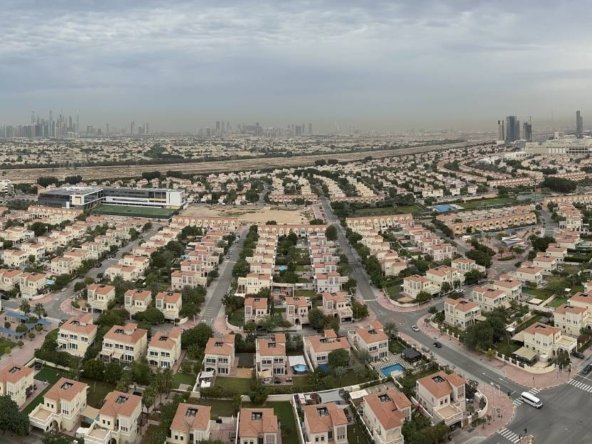Renting a home in Dubai marks an exciting new chapter, whether you’re new to the city or simply navigating its evolving rental market. Dubai’s diverse neighborhoods offer a wide array of living options, but the process can feel overwhelming, especially for those unfamiliar with the local market. This guide provides practical advice and insights to help you successfully navigate the rental landscape, ensuring you make informed decisions every step of the way.
1. Understand the Rental Market
Before you dive into the rental search, it’s important to understand the landscape of Dubai’s rental market. Research the average rental prices across different neighborhoods, and take note of the types of properties available, including villas, apartments, and townhouses. It’s equally important to consider amenities, local facilities, and the proximity to work or schools. By understanding the local market, you can refine your search criteria and set realistic expectations for what you can afford.
2. Establish Your Budget
Setting a budget is one of the most critical first steps in your rental journey. Assess your financial situation by considering your income, existing expenses, and savings. Don’t forget to factor in additional costs such as security deposits, agent fees, and utilities. A realistic budget ensures that you focus on properties within your means, which can help prevent unnecessary stress down the line.
3. Define Your Requirements
Knowing exactly what you want in a rental property will streamline the search process. Consider what’s most important for your lifestyle: Do you need a pet-friendly space? How many bedrooms and bathrooms do you require? Is proximity to public transportation or schools essential? Listing your must-haves and preferences will make it easier to identify properties that align with your needs, allowing you to narrow down the options and save time.
4. Work with a Real Estate Agent
A seasoned real estate agent can simplify your rental experience, offering insider knowledge of the local market and access to properties that may not be widely advertised. Agents are also skilled at negotiating terms and can provide guidance on rental laws and regulations. They can help clarify the legalities of your tenancy, from understanding lease terms to ensuring that your rights as a tenant are upheld.
5. View Properties
Once you’ve established a budget and defined your preferences, it’s time to start viewing properties. Scheduling viewings gives you the opportunity to inspect each property closely. Pay attention to details like the property’s condition, amenities, and surrounding area. Don’t hesitate to ask the landlord or agent about the lease terms, maintenance responsibilities, and any extra charges, such as utilities or service fees.
6. Review the Tenancy Contract
Before signing a tenancy agreement, carefully review the document to ensure you understand all the terms and conditions. Focus on crucial details like the rent amount, payment schedule, security deposit, and who is responsible for maintenance. If you have any doubts or concerns about specific clauses, don’t hesitate to seek clarification or consult a lawyer to ensure that you’re protected legally.
7. Pay Security Deposit and Rent
Once you’ve agreed on the terms, you’ll typically need to pay a security deposit and the first month’s rent. The security deposit is refundable, provided there’s no damage to the property when you move out. Always request a receipt for the payments you make to keep a record for future reference. This will protect you in case of disputes or discrepancies when it’s time to vacate the property.
8. Complete Ejari Registration
The Ejari system, regulated by the Real Estate Regulatory Agency (RERA), ensures the legal validity of tenancy contracts in Dubai. Your landlord or real estate agent will guide you through this mandatory registration process. Ejari registration protects both parties involved, ensuring that the terms of your lease are legally binding and providing a sense of security to tenants.
9. Set Up Utilities and Internet
To settle into your new home, you’ll need to arrange essential services such as electricity and water. Dubai Electricity and Water Authority (DEWA) handles these utilities, and you can set them up easily online. Additionally, make sure you arrange for internet and TV connections with a reliable provider to ensure you’re connected from day one.
10. Conduct a Move-in Inspection
Before you move in, it’s important to conduct a detailed inspection with the landlord or property manager to assess the property’s condition. Document any existing damages or issues with the property in writing. This can help you avoid disputes over the security deposit when you eventually move out. Taking photos and noting the condition of appliances, flooring, and fixtures is a proactive step to ensure you’re not held responsible for pre-existing issues.
11. Pay Rent on Time
Consistently paying rent on time is essential for maintaining a positive relationship with your landlord. Missing payments can lead to late fees or legal consequences. To avoid stress, set up automated payments or reminders to ensure you never miss a due date. If any issues arise that may prevent you from paying on time, notify your landlord in advance to discuss possible solutions.
12. Maintain Open Communication
Maintaining open lines of communication with your landlord or property manager is crucial for a smooth rental experience. If any maintenance issues or repairs arise, report them promptly. This will ensure the property remains in good condition and that you’re comfortable throughout your tenancy. Being proactive and transparent about any concerns helps to foster a positive relationship with your landlord.
Conclusion
Renting a home in Dubai is an exciting process, but it requires careful planning and attention to detail. By following this guide, you can navigate the rental market with confidence and clarity. From researching the market and setting a realistic budget to reviewing tenancy contracts and maintaining communication with your landlord, each step plays an integral role in ensuring a smooth rental experience. By staying informed and organized, you can find the perfect home in Dubai and make your transition to the city seamless.



